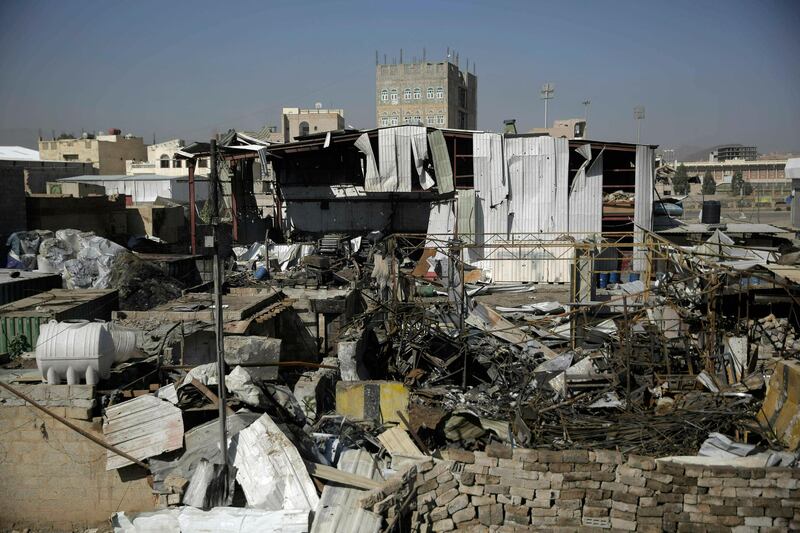In his second veto since becoming President, Donald Trump vetoed on Tuesday night a Congressional resolution that would have ended the US military role in Yemen.
Calling it “unnecessary, dangerous attempt to weaken my constitutional authorities”, Mr Trump struck down the resolution that was passed by a majority of lawmakers in the House and Senate this year.
“The United States is not engaged in hostilities in or affecting Yemen,” Mr Trump said in his statement.
He described the support behind the Saudi-led coalition as limited to “intelligence sharing, logistics support, and, until recently [last November], in-flight refueling of non-United States aircraft.”
“None of this support has introduced United States military personnel into hostilities,” he said.
The US support role in Yemen started under the Barack Obama administration and has continued throughout the Trump Presidency.
The US President defended this role, as a “duty to protect the safety of the more than 80,000 Americans who reside in certain coalition countries that have been subject to Houthi attacks from Yemen”.
He gave Saudi Arabia as one example where he said the “Houthis, supported by Iran, have used missiles, armed drones, and explosive boats to attack civilian and military targets in those coalition countries.” Mr Trump called the conflict in Yemen “a ‘cheap’ and inexpensive way for Iran to cause trouble for the United States and for our ally, Saudi Arabia”.
He also said the resolution would hurt efforts to prevent civilian casualties in the war, and prevent the spread of terrorist organizations such as al Qaeda in the Arabian Peninsula (AQAP) and ISIS, and that it would “embolden Iran's malign activities in Yemen.”
In his statement, however, Mr Trump stressed the need for “peace in Yemen”.
He said that it would require a negotiated settlement and not Congressional action.
The vetoed resolution called “direct the removal of United States Armed Forces from hostilities in the Republic of Yemen that have not been authorized by Congress.”
Independent Senator Bernie Sanders, Republican Mike Lee and Democrat Chris Murphy led the fight to pass it, in what constitutes the first time that the Congress sought to block a President on war authorization.
It identified hostilities “as including providing to the Saudi-led coalition aerial targeting assistance, intelligence sharing, and mid-flight aerial refueling”, and calls for end of those by the US military.
Last November, Washington ended refueling missions, and Saudi said then that US assistance was no longer needed.
The resolution also directed the President to remove US forces in Yemen except those fighting Al Qaeda, in no more than 30 days.
But with the Mr Trump’s veto, the Congress now needs two thirds support to overcome that obstacle. Gaining such majority remains unlikely.
In a statement, Mr Sanders who is running for the Democratic nomination for President in 2020, said: "I am disappointed, but not surprised, that Trump has rejected the bi-partisan resolution.
“The people of Yemen desperately need humanitarian help, not more bombs,” he added pledging to continue “efforts to reassert Congress' constitutional responsibility over war making”.
More than 6,872 civilians had been killed in Yemen since the war broke out in 2015.
UN envoy Martin Griffiths is making progress this in securing a redeployment of forces from Hodeideh, as a starting point for more peace talks between the waring parties to ultimately reach a settlement.






